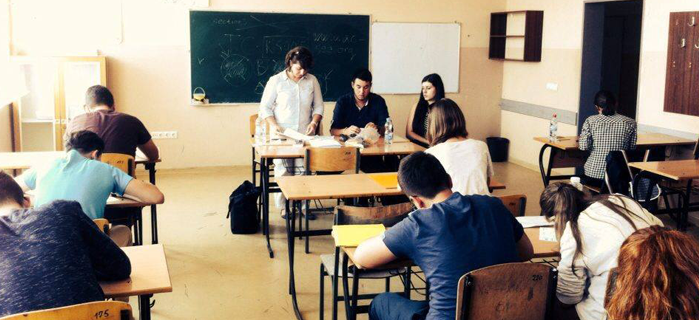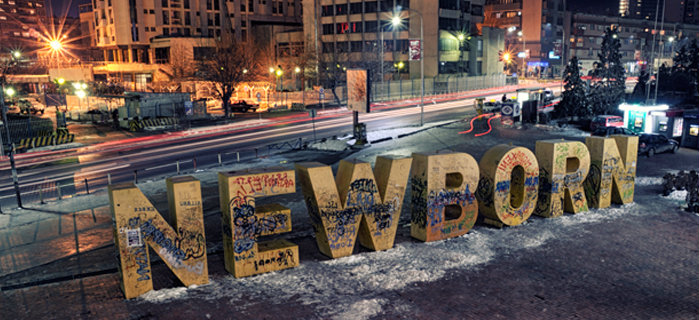By Christopher T. Barber, YES Program Participant Recruiter
An accent from the American south is quite peculiar: the elongation of vowels and shortening of consonants, all said in a nonchalant, yet formal eccentricity, is reminiscent of the United States' British ancestors.
An American myself, from the Pacific Northwest, I seldom hear this intriguing southern accent in real life, outside of television and films. But in the idyllic town of Prizren, Kosova, I met Ermal, an alumnus from the Youth Exchange and Study (YES) program speaking this very dialect, which he had perfected to a tee during his time in the US Ermal had recently returned from his ten-month youth exchange year in North Carolina, a state well-known for its deep southern accent.
Ermal lived in a small town in North Carolina, with a large and gregarious family that soon became his second home. He told me that the southern "drawl" was difficult for him at first, but he soon became used to those accentuated vowels and forgotten consonants, bringing them back with him upon his return to his native Kosova.
After a long Turkish coffee with Ermal outside of the Sinan Pasha Mosque in Prizren, I headed to Prishtina with my colleague Fjolla to continue the application and testing process for the next generation of YES students. Coincidentally, the next morning I met an alumna named Rin who spent her exchange year even deeper in the American south, in Baton Rouge, Louisiana.

Having studied in the US several years before, Rin 's accent wasn't quite as strong as Ermal's, but from her cadence, it was still obvious that she had lived in the south. Interestingly, Rin explained to me that her experience in the US was emblematic of American culture. Her host parents had Chinese ancestry and the high school she attended was predominately African-American. Although the Western Balkans is already diverse with numerous ethnicities, religions, and backgrounds, Rin 's time in the US was an entirely new experience. Other YES alumni I met during the recruitment testing in Prizren, Kamenica, and Prishtina all had equally interesting experiences in the US, each marked with distinct communities and contrasting environments.
Students who participated in the first rounds of testing included those with Albanian, Serbian, Bosnian, and Turkish descent, all of whom shared the same aspiration of studying for a scholastic year in the US Whether they will pass all three testing rounds and become the next generation of YES students is still unknown, but one thing is certain: exchange programs such as YES lead to exciting and unexpected connections between cultures.
About the Author
Christopher is originally from Oregon and is a returned Peace Corps Volunteer from Albania, where he spent over two years working in the education sector.
About the YES Program
The YES program is funded through the US Department of State to provide scholarships for high school students from countries with significant Muslim populations to spend one academic year in the US Students live with host families, attend high school, engage in activities to learn about American society and values, acquire leadership skills, and help educate Americans about their countries and cultures.

